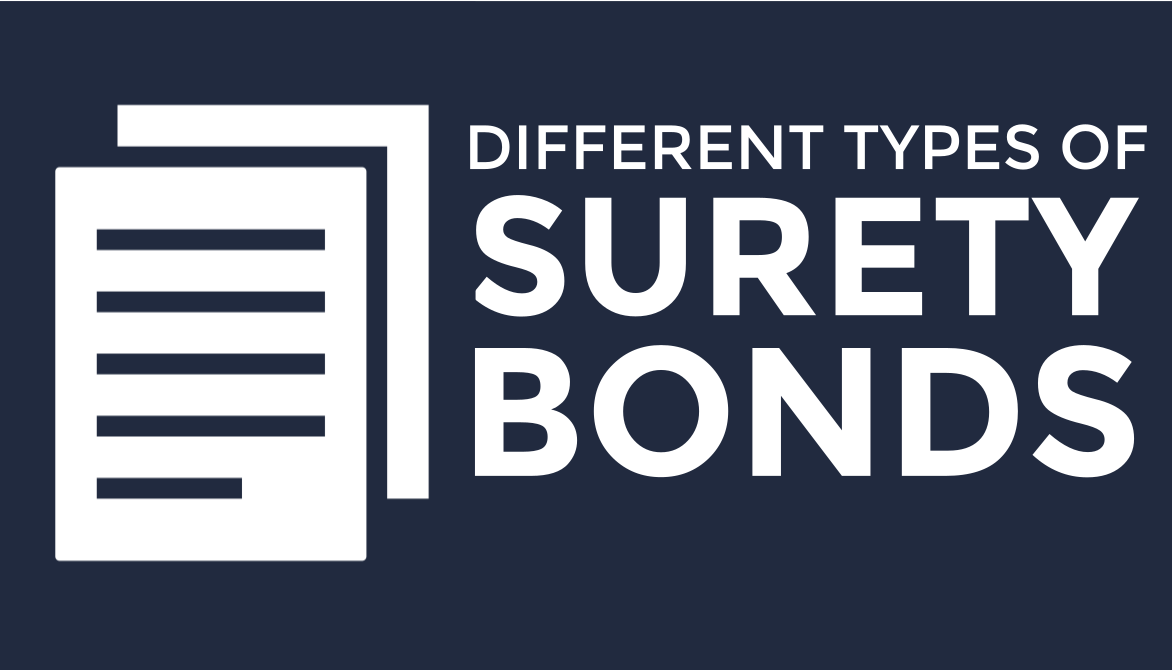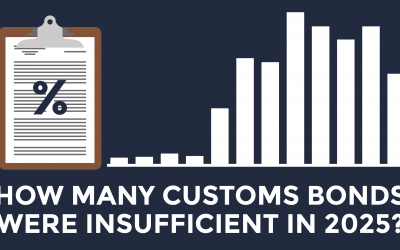Many of these bonds are government requirements, and some are optional risk management tools. We’re will describe a few of the most common types of surety bonds, and how they operate in a real-world environment.
Surety bonds are a contract between three parties: an obligee (the party being promised something), a guarantor (a surety agency), and a principal (The party making a promise). There are many types of surety bonds that are issued across the country.
U.S. Customs Bond
A U.S. Customs bond is a surety bond that provides a financial guarantee ensuring an importer (the principal in this example) will pay any duties, fees and/or taxes owed to U.S. Customs and Border Protection (the obligee in this example) by the importer. This promise is backed by a surety agency (the guarantor in this example), who will pay claims on behalf of the principal, should they be unwilling or unable to fulfill their commitment to CBP. This is not to say that the bond exists to relieve the importer from their obligation to pay dues. If an importer fails to pay claims on their bond, the surety is likely to not only demand repayment for the duties owed, but also to consider terminating the bond they hold for the importer.
Performance Bonds
A performance bond is generally placed between a contractor and the person or company the contractor is doing business with, with a surety as the third party. If the contractor fails to fulfill their contractual obligation, the end of the bond agreement is forfeit. A completion bond is an example of a performance bond. In a completion bond, a principal (usually a contractor) promises an investor that they will complete a project and is bonded in order to ensure that the project is completed. Other performance bonds include supply bonds and bid bonds — each of these essentially existing as a promise that something will be provided, be it materials, a project, or work to complete the project.
Judicial Bonds
Judicial bonds are part of the court system and are usually required by a judge. These bonds are probably the most well-known types of bonds amongst the general population because they include bail bonds, which most people have had at least one direct or indirect experience. A bail bond is placed in order to ensure that a person makes it to a court date they are required to attend. Fiduciary bonds are another type of class of judicial bond, in which the principal promises to fulfill an obligation. An example of one of these bonds would be an executor’s bond, I which an executor carrying out the stipulations in a deceased’s will must complete these tasks faithfully and dutifully. If the principal fails to do so, they forfeit the bond.
There are many other types of surety bonds, each relating to different situations and different industries. Keep reading TRG’s blog for more information.







![[Webinar] How Could Changes to De Minimis Impact Your Company?](https://traderiskguaranty.com/trgpeak/wp-content/uploads/2025/05/trg-how-de-minimis-impacts-customs-bond-webinar-400x250.png)